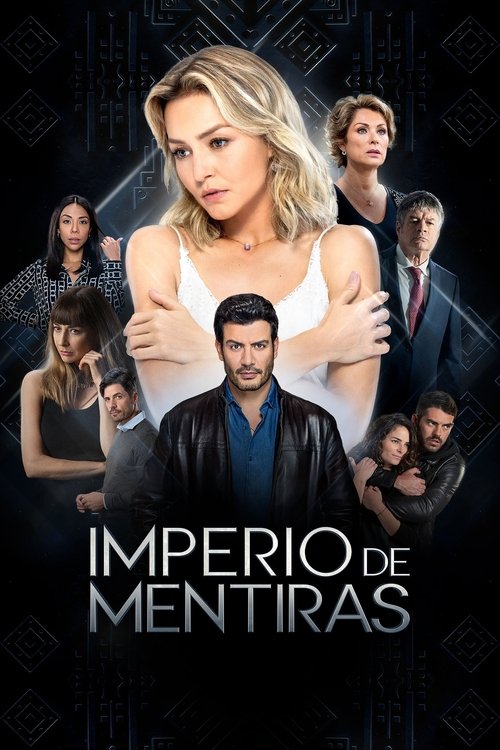
Ask Your Own Question
What is the plot?
In Episode 61 of "Vencer la ausencia," the episode opens with a tense atmosphere in the household of the main characters. The camera pans through the living room, where the family is gathered, visibly anxious about the recent developments regarding their missing loved one. The mood is heavy, and the weight of uncertainty hangs in the air as they discuss the latest news they received from the authorities.
As the scene shifts, we see one of the central characters, a mother named Valeria, pacing back and forth in her bedroom. Her internal struggle is palpable as she grapples with feelings of despair and hope. She clutches a photo of her missing child, tears welling in her eyes. Valeria's determination to find her child drives her to make a bold decision: she resolves to take matters into her own hands and begins to formulate a plan to investigate further.
The narrative then transitions to Valeria meeting with her close friend, who has been a source of support throughout this ordeal. They sit in a café, where Valeria shares her thoughts about the police's lack of progress. Her friend encourages her to trust the authorities but also acknowledges Valeria's need for closure. This conversation solidifies Valeria's resolve to pursue her own leads, and she decides to reach out to a private investigator.
Meanwhile, the episode cuts to a subplot involving Valeria's husband, who is struggling with his own emotions. He is seen at work, where he is distracted and unable to focus. His colleagues notice his distress, and one of them approaches him, offering a listening ear. This moment reveals his internal conflict and the strain that the situation is placing on their marriage.
Back at home, Valeria receives a call from the private investigator she contacted. The investigator, a seasoned professional, agrees to take on the case and asks Valeria for any information she might have. Valeria shares everything she knows, including the last known whereabouts of her child. The investigator promises to start immediately, and Valeria feels a flicker of hope for the first time in weeks.
As the episode progresses, we see Valeria and the investigator working together. They visit various locations that are significant to the case, including the last place her child was seen. Each location is filled with emotional weight, and Valeria's memories flood back as she recalls moments spent there. The investigator takes notes and asks probing questions, which helps Valeria to remember details she had previously overlooked.
In a pivotal scene, Valeria receives a tip from a local who claims to have seen her child. The tip leads them to a rundown area of the city, where they encounter a group of individuals who seem to know more than they let on. Tension escalates as Valeria confronts them, demanding answers. The investigator steps in to diffuse the situation, reminding Valeria to stay safe and not to act impulsively.
The episode reaches a climax when Valeria receives a shocking piece of information from the investigator. They discover that her child may have been seen with someone connected to a larger criminal network. This revelation sends Valeria into a spiral of fear and determination. She realizes that the stakes are higher than she initially thought, and she must act quickly to protect her child.
In the final moments of the episode, Valeria returns home, visibly shaken but resolute. She gathers her family and shares the news, emphasizing the need for them to stay united and strong. The episode closes with a shot of Valeria looking out the window, her expression a mix of fear and fierce determination, as she prepares for the challenges ahead. The screen fades to black, leaving viewers on the edge of their seats, eager to see what will happen next.
What is the ending?
In the ending of "Vencer la ausencia," episode 61, the characters face the culmination of their struggles and emotional journeys. The episode concludes with significant revelations and reconciliations, particularly focusing on the relationships between the main characters. The tensions that have built up throughout the season reach a peak, leading to moments of clarity and resolution.
As the episode unfolds, we see the characters grappling with their past decisions and the impact of their choices on their present lives. The emotional weight of their experiences leads to heartfelt confrontations and the possibility of healing. By the end, the characters find a sense of closure, allowing them to move forward with renewed hope and understanding.
In a more detailed narrative:
The episode opens with a somber atmosphere in the family home, where the characters are still reeling from the recent revelations that have shaken their foundations. The camera pans across the living room, capturing the tension in the air as each character processes their emotions.
We first see Valeria, who is sitting on the couch, her face a mixture of sadness and determination. She reflects on her journey, the sacrifices she has made, and the love she has for her family. Her internal struggle is palpable as she contemplates whether to forgive those who have wronged her.
Next, the scene shifts to her sister, who is pacing in her room, visibly anxious. She is torn between her loyalty to Valeria and her own desires. The audience can feel her internal conflict as she grapples with the consequences of her actions. The camera captures her biting her lip, a sign of her distress.
In a pivotal moment, Valeria confronts her sister, leading to a charged exchange filled with raw emotions. The dialogue is intense, with both sisters expressing their pain and misunderstandings. Valeria's voice trembles as she speaks, revealing her vulnerability, while her sister's eyes well up with tears, showcasing her regret. This confrontation serves as a turning point, allowing both characters to express their feelings openly.
Meanwhile, the scene transitions to the family patriarch, who is seen in his study, reflecting on his past mistakes. He is surrounded by photographs of happier times, and the weight of his decisions hangs heavily on him. The audience can sense his longing for redemption as he picks up a photo of his children, a symbol of the love he wishes to restore.
As the episode progresses, the characters begin to come together for a family meeting. The atmosphere is tense but hopeful. Each character shares their perspective, and the dialogue is filled with moments of silence that emphasize the gravity of their words. The camera captures close-ups of their faces, revealing the depth of their emotions--fear, hope, and a desire for reconciliation.
In the climax of the episode, a heartfelt apology is made by one of the main characters, which serves as a catalyst for healing. The emotional release is palpable, and the characters embrace, tears flowing freely. This moment signifies a turning point in their relationships, as they begin to understand the importance of forgiveness and moving forward together.
The episode concludes with a montage of the family members engaging in small, joyful moments--cooking together, laughing, and sharing stories. The camera captures their smiles, a stark contrast to the earlier tension. The final scene shows Valeria looking out the window, a soft smile on her face, symbolizing hope for the future.
By the end of the episode, each main character has experienced growth. Valeria finds strength in forgiveness, her sister learns the value of honesty, and the patriarch begins to mend his relationships. The episode closes on a note of unity, suggesting that while the past cannot be changed, the future holds the promise of healing and love.
Is there a post-credit scene?
In "Episode 61" of "Vencer la ausencia," there is no post-credit scene. The episode concludes with a significant emotional climax, focusing on the characters' resolutions and the aftermath of their conflicts. The narrative wraps up the main storylines, leaving viewers with a sense of closure regarding the events that unfolded throughout the episode. The absence of a post-credit scene emphasizes the weight of the episode's conclusion, allowing the audience to reflect on the characters' journeys and the themes of loss and reconciliation that permeate the series.
How does the relationship between Emiliano and his father evolve in this episode?
Emiliano struggles with his father's expectations and the pressure to conform, leading to a pivotal moment where he stands up for his own desires, showcasing his growth and desire for independence.
How does the episode depict the theme of loss through the character of Javier?
Javier grapples with the emotional aftermath of losing a loved one, and in this episode, his struggle is portrayed through poignant flashbacks that illustrate his grief and the impact it has on his current relationships.
What significant event occurs between the characters of Valeria and her mother in Episode 61?
In Episode 61, Valeria confronts her mother about the secrets that have been kept from her, leading to an emotional confrontation that reveals deep-seated feelings of betrayal and longing for connection.
What role does the character of Renata play in the unfolding drama of Episode 61?
Renata finds herself caught in the middle of the family conflict, trying to mediate between Valeria and her mother, which highlights her loyalty and the emotional toll it takes on her.
What is the significance of the family gathering in Episode 61?
The family gathering serves as a catalyst for unresolved tensions to surface, leading to confrontations that reveal hidden truths and set the stage for future conflicts among the characters.
Is this family friendly?
"Vencer la ausencia," while primarily a family drama, does contain themes and scenes that may be sensitive for children or those who are easily upset. In episode 61, viewers may encounter:
- Emotional Turmoil: Characters experience intense emotional struggles, including grief and betrayal, which may be distressing for younger audiences.
- Conflict and Tension: There are scenes of family conflict that can be quite heated, showcasing arguments and confrontations that might be uncomfortable to watch.
- Themes of Loss: The overarching theme of absence and loss can evoke sadness, as characters deal with the repercussions of missing loved ones.
- Romantic Complications: There are complex romantic relationships that may involve jealousy and heartbreak, which could be confusing or upsetting for younger viewers.
These elements contribute to the show's dramatic tone and may not be suitable for all children or sensitive viewers.





























